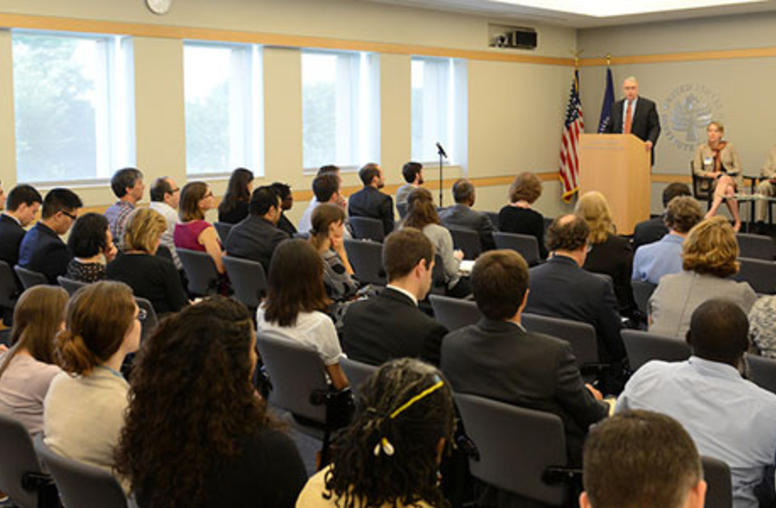
Youth & Violence: Engaging the Lost Generation
On June 9th, Mercy Corps and USIP held a discussion on youth, violence and peacebuilding.
As a national, nonpartisan, independent Institute, the U.S. Institute of Peace draws on our exceptional convening power to create opportunities for diverse audiences to exchange knowledge, experiences, and ideas necessary for creative solutions to difficult challenges. We serve as an important, neutral platform for bringing together government and nongovernment, diplomacy, security, and development actors, and participants across political views. The Institute’s events help shape public policy and priorities to advance peaceful solutions to conflict and strengthen international security.

On June 9th, Mercy Corps and USIP held a discussion on youth, violence and peacebuilding.
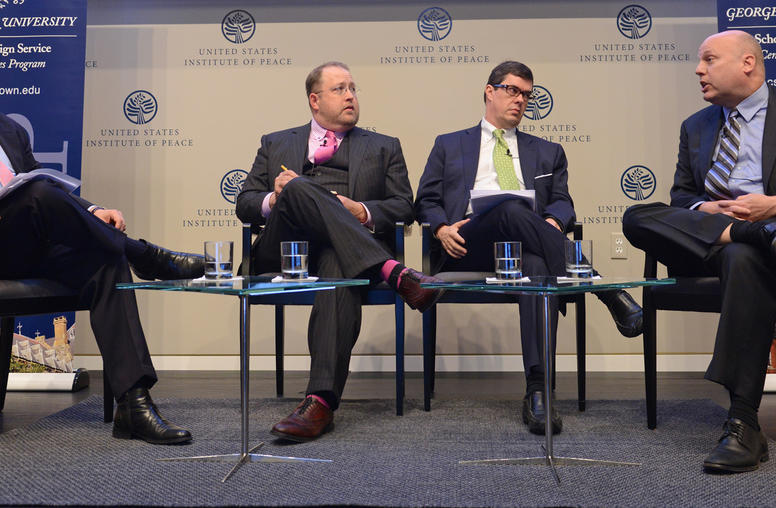
The U.S. Institute of Peace and the Georgetown University's School of Foreign Service hosted "China’s Roles in the World," a daylong conference designed to explore China’s growing role in the global economic, military and political realms and implications for regional security and U.S. policy. This conference will provided a more comprehensive perspective of Chinese foreign policy by evaluating the various roles China plays in the world – as rule maker, rule breaker and partner.
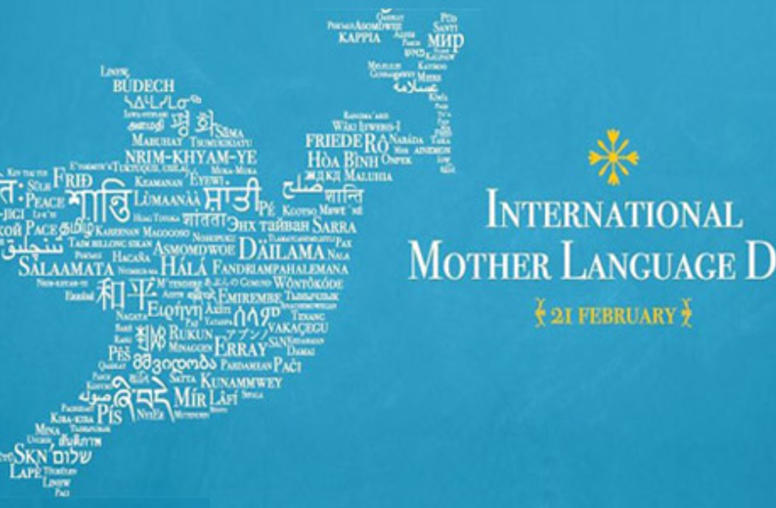
Please join USIP and the Alliance for Peacebuilding for a symposium in honor of International Mother Language Day.
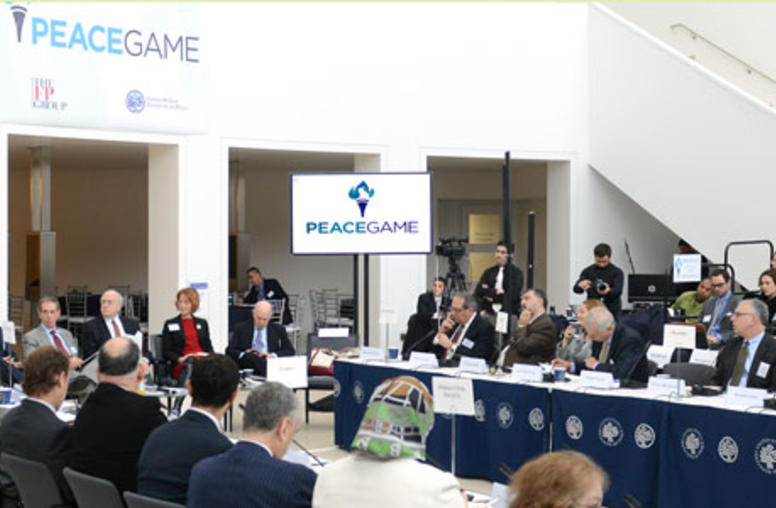
Governments around the world regularly devote enormous resources to conducting “war games.” On December 9, the U.S. Institute of Peace (USIP) and The FP Group (FP) conducted the inaugural PeaceGame, focusing on “the best possible peace for Syria.” With one game in the U.S. and another in the Middle East, the semi-annual PeaceGames brought together the leading minds in national security policy, international affairs, academia, business, and media to “game” out how we can achieve peace in Syria.
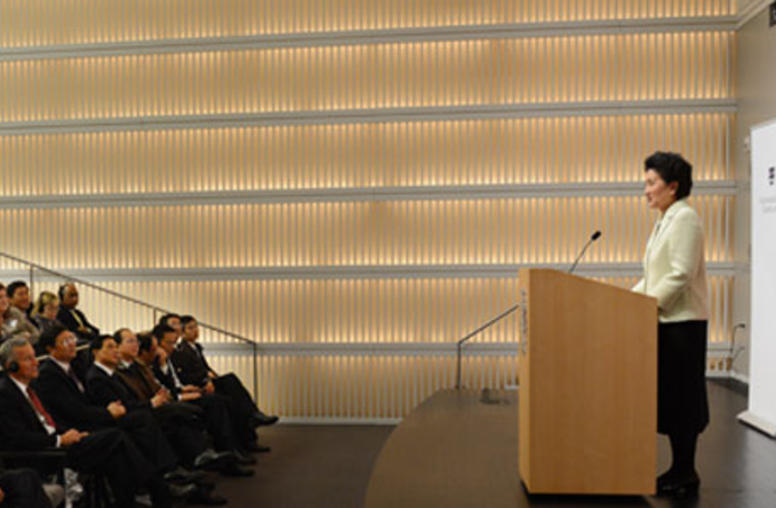
Vice Premier Liu Yandong of the People’s Republic of China addresses the advancements in U.S.-China relations.
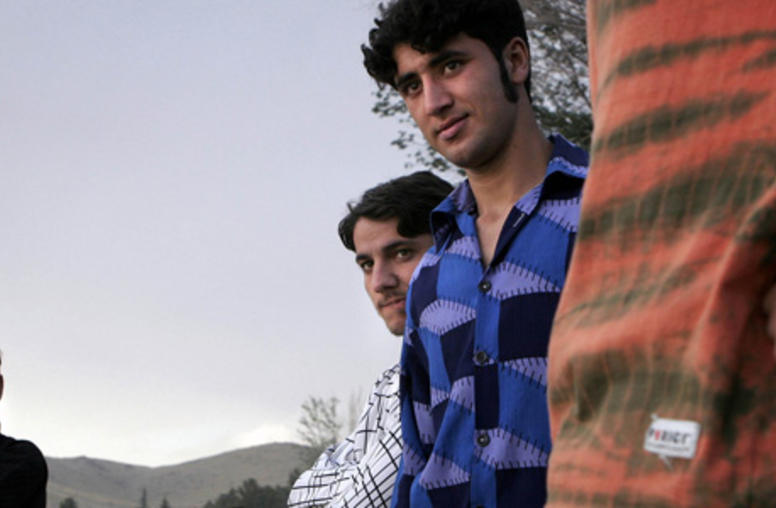
A new generation is emerging in Afghanistan that is more educated, more connected with the world, and more hopeful about the future than previous generations. The U.S. Institute of Peace hosted a public event on the opportunities and challenges youth face today, and their perspectives on the country’s future.
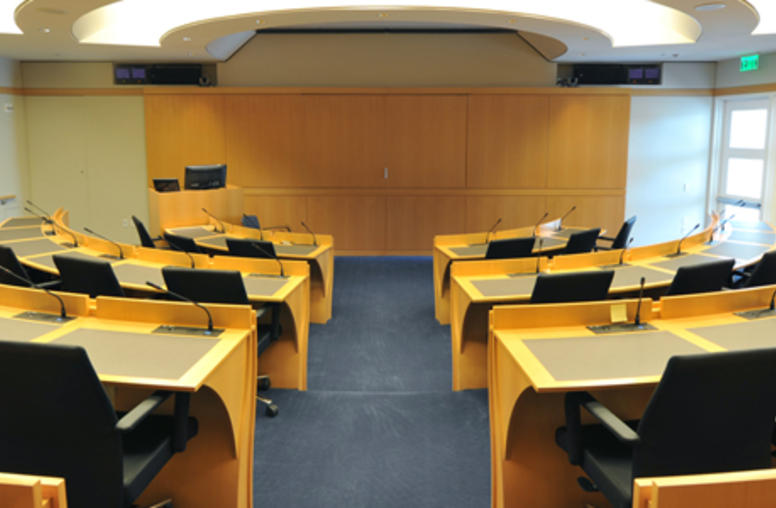
Tunisia's 2010-11 “Jasmine Revolution” ignited a flame of political rebellion that quickly spread to Egypt, Yemen, Libya, Bahrain, and Syria. But as the "Arab Spring" enters its third season, Tunisia’s struggle for democracy is beset by escalating ideological and even violent conflicts. What are the key challenges facing Tunisia? How can U.S. officials and nongovernmental organizations help Tunisians address mounting domestic and regional crises? Read the event coverage, Tunisian Academic ...
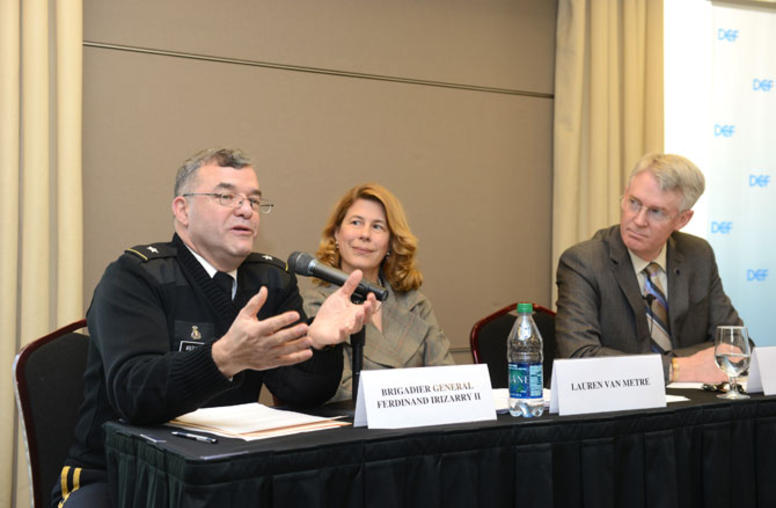
Please join the Reserve Officers Association and the United States Institute of Peace (USIP) for a program that will explore new education and training approaches being used to help U.S. troops better prepare for these complex operating environments before their deployment. Read the event coverage, USIP, ROA Hold Forum on “Training for War and Fragile Peace”
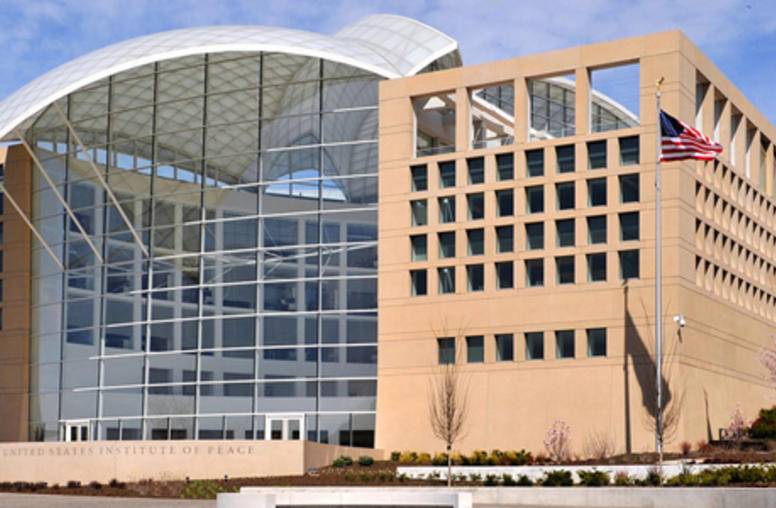
In May 2012, Education Above All, a Doha-based education group, commissioned papers from practitioners and thematic experts that map and analyze the most widely used of different curricula, collectively designated as “education for global citizenship,” and the policies that have accompanied their implementation. To explore the findings of this research, the project director, technical adviser and expert on conflict and education, Margaret Sinclair, discuss these research findings with experts...
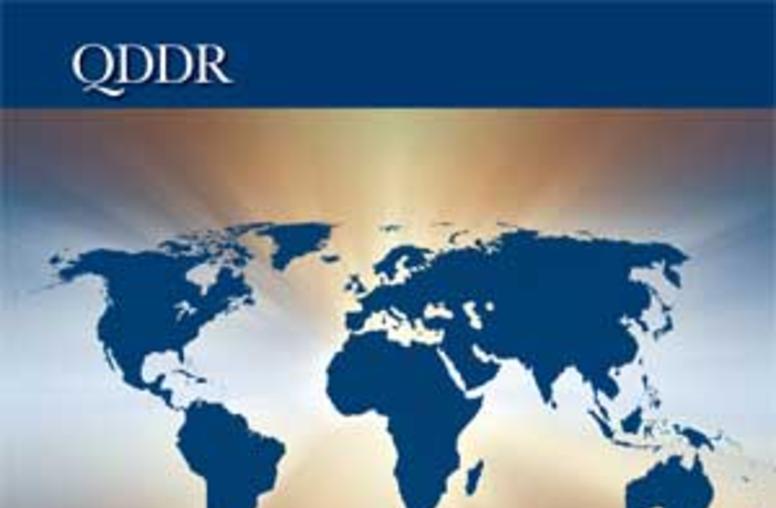
After Secretary of State Hillary Clinton introduced the QDDR as a major step in elevating development alongside diplomacy as a key pillar of American foreign policy, many non-governmental organizations (NGOs) welcomed the QDDR as the beginning of a better coordinated and more effective approach to global development. USIP and Webster University will host a day of discussion about how the QDDR complements NGO efforts in development, humanitarian relief and conflict management as well as the c...